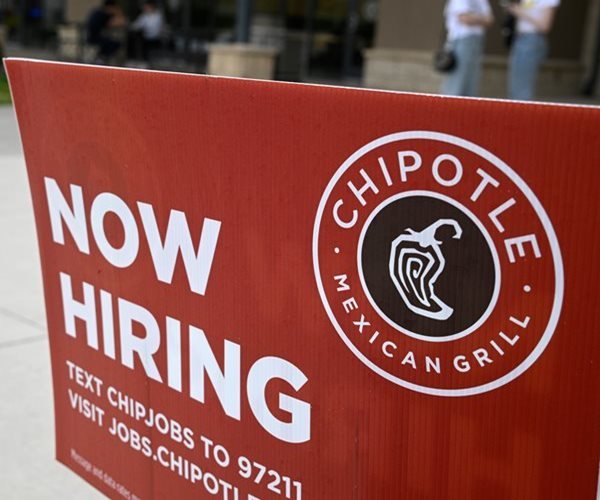[ad_1]
Amidst the chaotic political discourse of our era, immigration issues continually make headlines. However, the profound economic significance of work visas is often sunk beneath the surface noise of these debates.
This topic resonates personally with me, born into a migrant worker family. I have observed firsthand the irreplaceable influence immigrant labor has across various sectors – from construction to agriculture, manufacturing, hospitality, and technology.
Without the robust work ethic of these individuals, our economy would suffer a significant setback. It’s high time we highlight their crucial contributions and develop legal channels for them to fully engage in our workforce. Let’s dig deeper into this matter.
Consider the agriculture sector, which is close to my heart since I experienced the migrant farm worker life firsthand, picking apples, strawberries, corn, and tomatoes in different states.
The Role of Immigrant Workers in Agriculture
The grueling nature of agricultural work is no secret. Numerous attempts to hire American-born workers for these jobs have been largely unsuccessful. Thus, immigrant workers provide the backbone of our agricultural sector, stocking our supermarkets with fresh produce. Their hard work is vital to the functioning of this industry, forming a key part of our economy.
Yet, despite their undeniable contributions, these workers often face a tangled web of legal complications.
It’s essential to acknowledge their sacrifices and offer a clear and simple pathway to legal employment for their benefit and ours. This is not only just but also crucial for sustaining our nation’s economic vigor. Labor shortages, in fact, result in approximately 10 million tons of specialty crops grown on farms each year never making it to consumption.
Historically, programs like the Bracero program offered hope. While it was far from perfect, it showed the potential of structured systems to address labor needs, allowing workers to come in when needed and return home afterward. Modern equivalents, tailored to contemporary economic demands, are urgently needed in sectors like agriculture and hospitality.
The Importance of Immigrant Families in Our Communities
Besides workers, let’s not forget about their families. Deeply woven into our communities, they enhance our cultural diversity and fortify our social fabric. Comprehensive immigration reform must accommodate the well-being and integration of these families, recognizing their intrinsic societal value.
However, despite solid economic reasons for reform, a string of challenges face us. From pressure on infrastructure to worries over social cohesion, moving forward is riddled with complications. Ignoring these economic realities will only aggravate current problems.
Futuristic and practical policies that recognize the value of immigrant labor while addressing genuine concerns relating to national security and impact on local communities are necessary.
Considering the state of Texas, a representative example of broader immigration issues, the stakes are extremely high. With over 3 million U.S. citizens living alongside undocumented family members and a labor shortage, Texas epitomizes the intertwined challenges faced by families and employers.
U.S. Rep. Colin Allred’s recent advocacy for extending work permits to citizens’ spouses and children offers a glimmer of hope amidst these uncertainties. This bipartisan solution not only reunites families but also strengthens Texas’ workforce, adhering to moral obligations while bearing economic realities in mind.
The Urgency of Sensible Immigration Policies
While grappling with numerous aspects of immigration, it’s crucial to enact sensible work visa policies, not just for Texas, but for the nation as a whole. This isn’t merely a moral obligation; it’s a vital step towards securing our economic future. The crucial labor contributions of immigrants cannot be ignored, nor can the pressing need for reform.
I urge the business community to join this essential dialogue. Your knowledge, expertise, and support are vital in formulating policies that mirror the economic realities on the ground. Let’s overcome partisan divides and work cooperatively towards solutions that benefit everyone.
The time for action is now. Let’s navigate beyond the political noise and advocate policies that acknowledge the economic need for work visas. Our economy relies on it, as do the millions of hardworking immigrants powering it. Let’s chart a course that’s not only morally upright but economically astute, ensuring prosperity for future generations.
__________________
Javier Palomarez proudly serves as the President & CEO of the United States Hispanic Business Council (USHBC). Palomarez is an esteemed voice in areas such as multi-cultural consumerism, marketing, small business, entrepreneurship, and the Hispanic electorate. Noted for his active advocacy for small business and entrepreneurship, he is a nationally recognized leader in the Hispanic community, listed among America’s most influential Hispanics for over a decade. The USHBC functions as a representative voice for the Hispanic business community, concentrating on improving access to contracting services in the public and private sector, advocating for fair representation of Hispanics in business, media, and politics, and ensuring Hispanics have a say in the national dialogue. The USHBC is a bipartisan, non-profit organization.
[ad_2]








